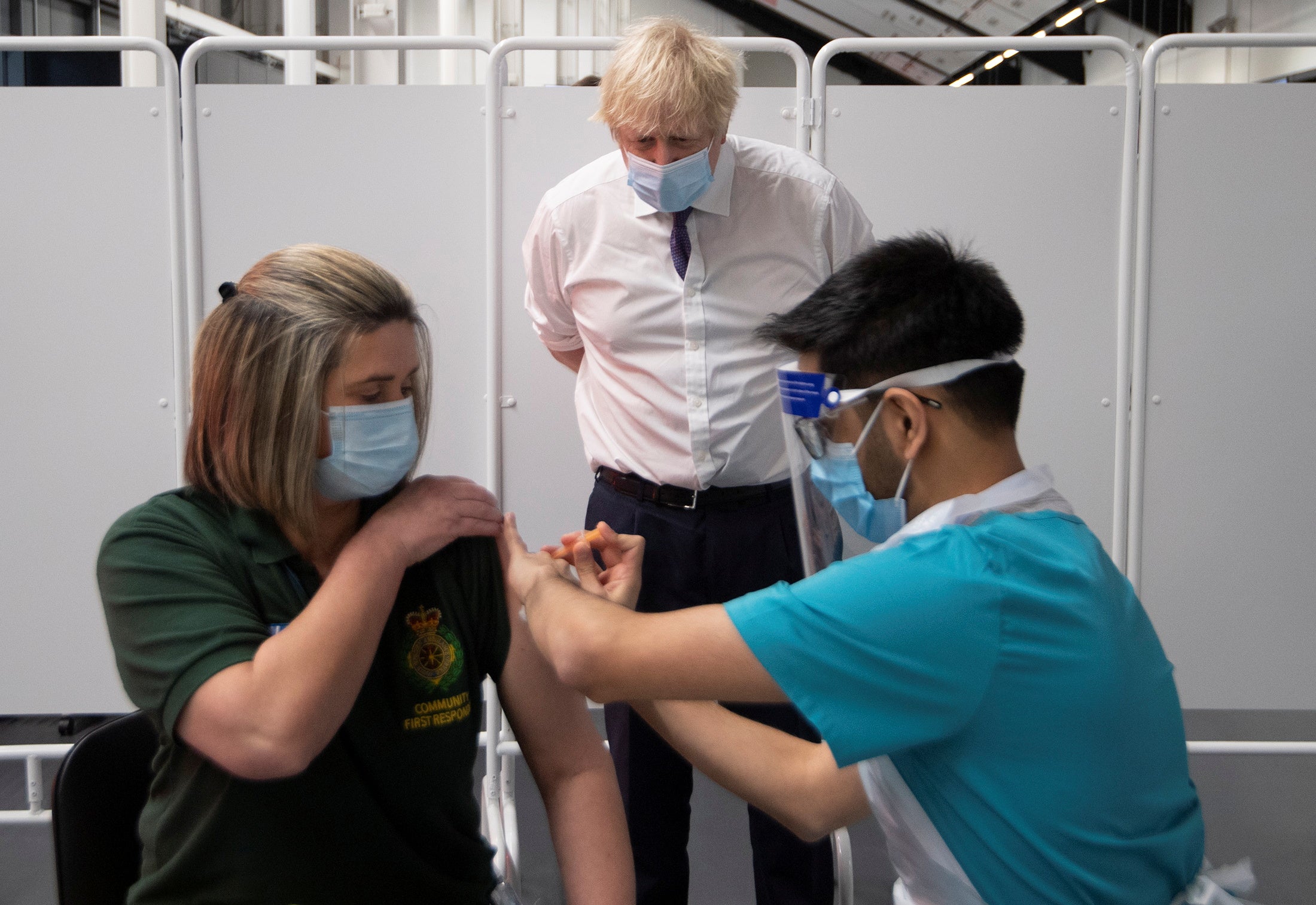What if the vaccine isn’t enough? We must plan for all scenarios
While we can hope for the best, says Vince Cable, we need to prepare for the worst: severe pandemic restrictions through 2021 and beyond


Most of us, including the government, are assuming that if the mass vaccination goes ahead speedily we shall see relaxation of the Covid restrictions in March and be largely free of them in the summer. The economy will bounce back and we can begin to enjoy the Roaring Twenties with a good holiday in the sun. My own sense of optimism is fuelled by the fact that I am in line to get my first vaccine jab this week and I already feel safer and freer.
But maybe that is wishful thinking? What if the vaccination rollout is slower than we hope (and impeded by idiotic NHS bureaucracy, such as the requirement that volunteers should have a level 2 “safeguarding” qualification in case they encounter children)? What if another variant of the virus arrives that requires new vaccines and repeat vaccination programmes? What if there are sufficient numbers who fail to get vaccinated – because of ignorance, groundless prejudice or fear – as to keep the pandemic alive?
Someone has to ask these “what if” questions and plan accordingly. Our government seems incapable of doing so, which is why there were no pandemic preparations, despite warnings, a year ago and apparently almost no planning for the very predictable “second wave”. It is perhaps human nature to hope for the best and our prime minister seems to have more of this trait than most.
Wars invariably start with the belief that they will only last a few weeks and not kill many people. Pandemics, likewise. I see that several leading epidemiologists are already warning that, while we can hope for the best, we need to prepare for the worst: severe pandemic restrictions through 2021 and beyond.
Action is needed in several areas. The first is to achieve a long-term step change in NHS capacity. We are constantly told that the system is imminently at “breaking point”. Without doubt, the medical teams in ICU units are under enormous strain. Nor is it tolerable to continue to postpone cancer treatment and heart surgery. But once frontline staff are vaccinated that should start to reduce the enormous sickness rate.
Even then, the problems remain acute. I am told that a big emerging problem is the large number of recovering Covid patients who are filling hospitals but should be back home or in care homes with support from physiotherapists, community nurses and care workers. There are the usual problems of staff shortage and financially stressed councils.
So why isn’t there a large-scale emergency programme to recruit, and pay generously, recently retired staff for the highly skilled tasks, and hire those who are out of work for the relatively unskilled work? Why hasn’t there been more progress to hire, or commandeer, the facilities of the private sector for bed spaces and elective medical work not requiring the specialists of the NHS? As ever, why are councils being kept in a state of suspended insolvency? (Sir Keir Starmer’s populist demand for a freeze in council tax doesn’t help.)
The second priority is to mend, urgently, the holes in the social safety net which are currently forcing large numbers of poorer people to keep working when they are in dangerous settings and contributing to community transmission. The more obvious failings in the system have been endlessly pointed out by poverty campaigners: the very low level of sickness pay and the 2 million others deemed too poor (not too rich) to be eligible; the large numbers of self-employed being excluded from benefits; the continued inadequacy and waiting times of universal credit. The furlough scheme may be an essential prop well beyond April. We know that after the pandemic there will have to be a radical overhaul of our threadbare welfare system. It needs to start now.
A recent report of the Northern Rock Foundation and other Tyneside charities paints a bleak picture of just how desperate the situation has become in some deprived communities. If the pandemic drags on it will no longer be adequate to apply temporary palliatives. A good example of the failure to think and plan long-term is the premature abandonment of the excellent “Everyone In” scheme, which accommodated rough sleepers in hotels over the autumn; the homeless are now back on the streets in greater numbers and in worse weather.
A third area of priority is to think through the enforcement of social distancing over the long haul. Britain (like the US and other high Covid incidence countries) has found itself in an awkward place: without the ruthless but effective authoritarianism of China or Vietnam and without the self-discipline and social cohesion of Japan and South Korea, Scandinavia and Germany (and without their competent governments, either).
There is a danger of extreme silliness like the overzealous Derbyshire constabulary or the petty vindictiveness of people complaining that Boris Johnson shouldn’t go out for a healthy and harmless cycle ride in the Olympic Park. There is a small number of serious “Covidiots” – essentially the people who organise super-spreading social gatherings in badly ventilated spaces. But they are not the people sitting on park benches, going for a walk with the dog or cycling in the Olympic Park. If the system is not to collapse through ridicule and resentment it needs to be proportionate; not based on rules for rules’ sake.
And fourth, the economics of Covid need updating. There was a lot of new thinking in the early days of the pandemic, particularly about the receding limits of deficits and debt. Rishi Sunak basked in the warm glow of approval for his commitment to do “whatever it takes” to get us through the crisis. So did the European Union and even the Trump administration. Central banks fertilised the magic money tree.
More recently, the assumption that the end of the pandemic is nigh has reactivated the Treasury instinct to tighten the fiscal screws. That would be a bad mistake, as the Organisation for Economic Cooperation and Development warned this week. In the middle of a war – and we may be at the end of the beginning, not the beginning of the end – it isn’t the role of the paymasters to tell the generals that they can’t have more bullets because the debt-to-GDP rate is too high. We are still well below the levels experienced at the end of real wars.
There comes a time when post-war chancellors have to institute austerity to make debt service sustainable. But that is for when a war is well behind them and the reconstruction well underway. In the great international reckoning with Covid, that moment is still likely to be years away.
Sir Vince Cable is the former leader of the Liberal Democrats and served as secretary of state for business, innovation and skills from 2010 to 2015



Join our commenting forum
Join thought-provoking conversations, follow other Independent readers and see their replies
Comments